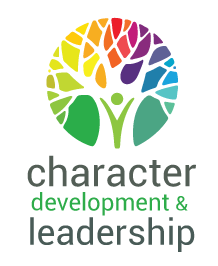
Yesterday was the anniversary of Martin Luther King’s birthday. He would be 89 today, had he lived. As a person who wrote about Dr. King, I know a thing or two about him and the Civil Rights Movement. I want to take a moment to provide a few lessons that might register with you today.
Lesson #1 – Leadership is Timeless: I sometimes forget just how young Dr. King was during the Civil Rights Movement. He was just 24 when he accepted his first ministerial job at Dexter Avenue Baptist Church in Montgomery, Alabama. It was just two short years later when Rosa Parks refused to give up her seat on a bus in Montgomery. King was just 26 years old when he was nominated as the spokesman for the Montgomery Improvement Association, leading the first organized boycott of the Civil Rights Movement. He was only 34 when he gave his, “I have a dream” speech in front of 1 million people and his life was ended before he could turn 40.
Lesson #2 – Courage has no age-restriction: Dr. King was the voice and the recognized leader of the Civil Rights Movement, but please understand that it took an army to make the necessary changes. For instance, in arguably the most segregated city in America – Birmingham, Alabama – King organized sit-ins, marches and protests to break the will of Governor George Wallace and police commissioner, “Bull” Connor. Over 2,500 children took part in these protests. When “Bull” Connor ordered the fire hoses to be turned on, the children knelt down to pray in the streets. Even the most hardened men could not follow those orders. Consequently, city and state officials were forced to open negotiations and change policy.
Lesson #3 – Stand Up For Freedom: When I looked at that photograph of Dr. King giving his “Dream” speech in Washington, D.C., I was amazed that the only black person I could identify is that of Dr. King. This reminded me that this was not a just the fight of black individuals. It was a fight of right vs. wrong, freedom vs. intolerance and love vs. hate. White people had the choice of which side to line up, and while many chose intolerance, many others lined up on the side of freedom. As Dr. King said himself, “The enemy is not white people. The enemy is segregation itself.”
Your Turn:
Young people led the Civil Rights Movement and the protests against the war in Vietnam. Young people changed the course of the world. For what cause would you be willing to lead a protest, give freely of yourself or risk your life? Remember, Dr. King was arrested 30 times.

I would lead a protest or risk my life if I knew I would be making a difference to many others. I would risk my life if I were to do something I love or if I was able to make the world a better place to help out people in need, just like Dr. King did. I would be willing to lead a protest about women getting the rights they deserve. I would also be willing to risk my life so many of the homeless people would not have to worry about earning money.